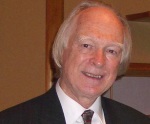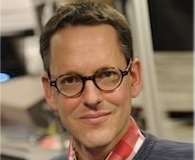Links to external sources may no longer work as intended. The content may not represent the latest thinking in this area or the Society’s current position on the topic.
Bioinspiration of new technologies

Scientific discussion meeting organised by Professor Denis Noble CBE FRS, Professor Clemens Kaminski and Professor Richard Templer
Event details
Biological structures and processes have benefited from billions of years of refinement during the process of the evolution of life on earth. So why should we not benefit from what nature discovered in designing our own new technologies? This meeting brings together scientists from a range of disciplines to discuss how nature has inspired their work and how this can contribute to the technological evolution.
The meeting programme is available to download. To access the journal articles relating to the event, visit the Interface Focus website.
Online participation
In addition to attracting an audience in London, this meeting was webcast live and featured an online question and comment system, allowing participation and discussion across the world.
The discussion was also carried through to Twitter, and a Storify of Tweets is available to access here
In 2015 the Royal Society marked the 350th anniversary of Philosophical Transactions, the world’s first science journal. Philosophical Transactions introduced the fundamental concepts and processes of scholarly communication which are still used by almost 30,000 journals published today.
Royal Society journals have long been the vehicle by which papers given at our prestigious discussion meetings are disseminated to a broad audience beyond the meeting. For our anniversary year, we held this meeting to reach out to new audiences over the web and around the world, allowing online attendees to ask questions, comment and join the discussion.
Enquiries about the meeting or online participation: Contact the events team



